CONTENTS
Guide
Principles for Dealing with the Changing World Order
Why Nations Succeed and Fail
Ray Dalio
Author of the #1 New York Times Bestseller Principles and Founder of The Worlds Largest Hedge Fund
ALSO BY RAY DALIO
Principles: Life and Work
Principles for Navigating Big Debt Crises
Principles for Success
A VID R EADER P RESS
An Imprint of Simon & Schuster, Inc.
1230 Avenue of the Americas
New York, NY 10020
www.SimonandSchuster.com
Copyright 2021 by Ray Dalio
All rights reserved, including the right to reproduce this book or portions thereof in any form whatsoever. For information, address Avid Reader Press Subsidiary Rights Department, 1230 Avenue of the Americas, New York, NY 10020.
First Avid Reader Press hardcover edition November 2021
AVID READER PRESS and colophon are trademarks of Simon & Schuster, Inc.
For information about special discounts for bulk purchases, please contact Simon & Schuster Special Sales at 1-866-506-1949 or .
The Simon & Schuster Speakers Bureau can bring authors to your live event. For more information or to book an event, contact the Simon & Schuster Speakers Bureau at 1-866-248-3049 or visit our website at www.simonspeakers.com.
Interior design by Creative Kong
Jacket design: Rodrigo Corral / Book design: Creative Kong
Library of Congress Cataloging-in-Publication Data has been applied for.
ISBN 978-1-9821-6027-2
ISBN 978-1-9821-6479-9 (ebook)
To my grandchildren and those of their generation who will be participants in the continuation of this story: may the Force of Evolution be with you.
WITH APPRECIATION
To all who helped me learn, you each have my deep gratitude for giving me valuable bits and pieces that I could put together to make this book. If it wasnt for the conversations we had, the thoughts you shared in your writings, and the histories and statistics that you dug out from archives, this book would have not been possible. In some cases you are still with us and in some cases you are not, but you are all in my thoughts. I am especially grateful to Henry Kissinger, Wang Qishan, Graham Allison, Lee Kuan Yew, Liu He, Paul Volcker, Mario Draghi, Paul Kennedy, Richard N. Haass, Kevin Rudd, Steven Kryger, Bill Longfield, Neil Hannan, H. R. McMaster, Jiaming Zhu, Larry Summers, Niall Ferguson, Tom Friedman, Heng Swee Keat, George Yeo, Ian Bremmer, and Zhiwu Chen.
I also want to thank Peer Vries, Benjamin A. Elman, Pamela Kyle Crossley, Sybil Lai, James Zheng Gao, Yuen Yuen Ang, Macabe Keliher, David Porter, Victor Cunrui Xiong, David Cannadine, Patricia Clavin, Duncan Needham, Catherine Schenk, and Steven Pincus, among others for their valuable perspectives.
I am also very grateful to those who helped convert these concepts and writings into a book, which was nearly as much of an undertaking as coming up with them. I am grateful to Mark Kirby above all others for his unwavering devotion, talent, and patience. I am also grateful to Michael Kubin, Arthur Goldwag, and Phil Revzin, who all provided helpful comments on the manuscript, and to Jim Levine, my literary agent, and Jofie Ferrari-Adler, my editor, who helped create this book and get it out there.
Beyond these people were many others, including Gardner Davis, Udai Baisiwala, Jordan Nick, Michael Savarese, Jonathan Bost, Stephen McDonald, Elena Gonzalez Malloy, Khia Kurtenbach, Alasdair Donovan, Floris Holstege, Anser Kazi, Chris Edmonds, Julie Farnie, and Brian De Los Santos, who contributed significantly behind the scenesas did all the people at Bridgewater, who together created the most amazing learning platform imaginable.
HOW TO READ THIS BOOK
- In writing this book I wrestled with whether to make it complete or concise and decided to try to make it both by bolding passages to create a quick-read version. If you want to read the concise version, read what is in bold, and if you want more, its all available to you.
- I also wanted to convey some principles that are timeless and universal truths for dealing with reality well, which I denoted by
 putting a red dot in front of them and italicizing .
putting a red dot in front of them and italicizing . - For some subjects, I had embellishments that I thought would be interesting to some but not all readers, so I chose to present them as an addendum to the respective chapter. Feel free to read or skip as you like.
- At the back of this book, you can find a glossary that explains the abbreviations you see in some of the charts.
- Finally, to keep this book from becoming much too long, there is also a lot of supplemental material available at economicprinciples.org, including reference material, citations, more data on the indices, etc.
INTRODUCTION
T he times ahead will be radically different from those weve experienced in our lifetimes, though similar to many times in history.
How do I know that? Because they always have been.
Over the last 50 or so years, in order to handle my responsibilities well, I have needed to understand the most important factors that go into making countries and their markets succeed and fail. I learned that to anticipate and handle situations that I had never faced before I needed to study as many analogous historical cases as possible to understand the mechanics of how they transpired. That gave me principles for dealing with them well.
A few years ago, I observed the emergence of a number of big developments that hadnt happened before in my lifetime but had occurred numerous times in history. Most importantly, I was seeing the confluence of huge debts and zero or near-zero interest rates that led to massive printing of money in the worlds three major reserve currencies; big political and social conflicts within countries, especially the US, due to the largest wealth, political, and values gaps in roughly a century; and the rising of a new world power (China) to challenge the existing world power (the US) and the existing world order. The most recent analogous time was the period from 1930 to 1945. This was very concerning to me.
I knew that I couldnt really understand what was happening and deal with what would be coming at me unless I studied past analogous periods, which led to this study of the rises and declines of empires, their reserve currencies, and their markets. In other words, to develop an understanding of what is happening now and might happen over the next few years, I needed to study the mechanics behind similar cases in historye.g., the 193045 period, the rise and fall of the Dutch and British empires, the rise and fall of Chinese dynasties, and others. I was in the midst of doing those studies when the COVID-19 pandemic struck, which was another one of those big events that never happened in my lifetime but had happened many times before. Past pandemics became a part of this study and showed me that surprising acts of naturee.g., diseases, famines, and floodsneed to be considered as possibilities because those surprising big acts of nature that rarely come along were by any measure even more impactful than the biggest depressions and wars.
As I studied history, I saw that it typically transpires via relatively well-defined life cycles, like those of organisms, that evolve as each generation transitions to the next.

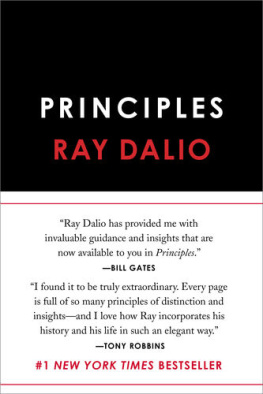
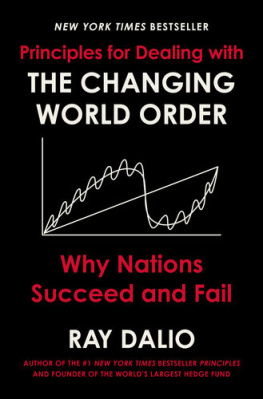

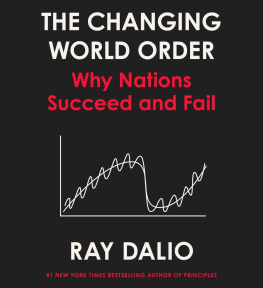
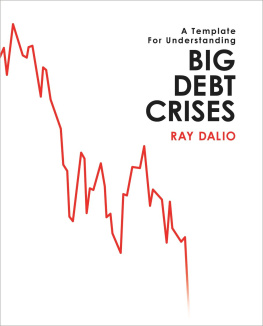

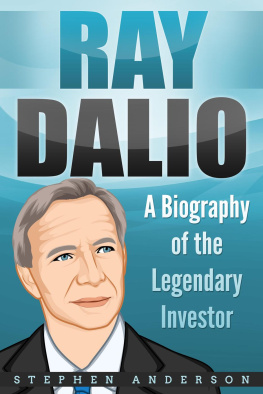
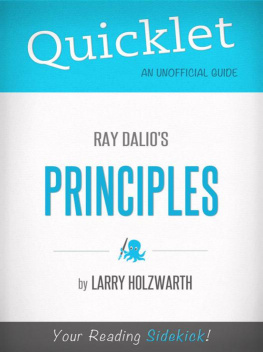
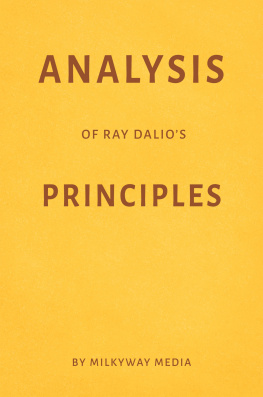
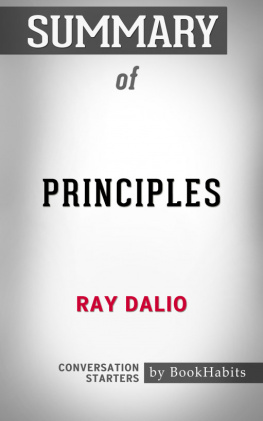
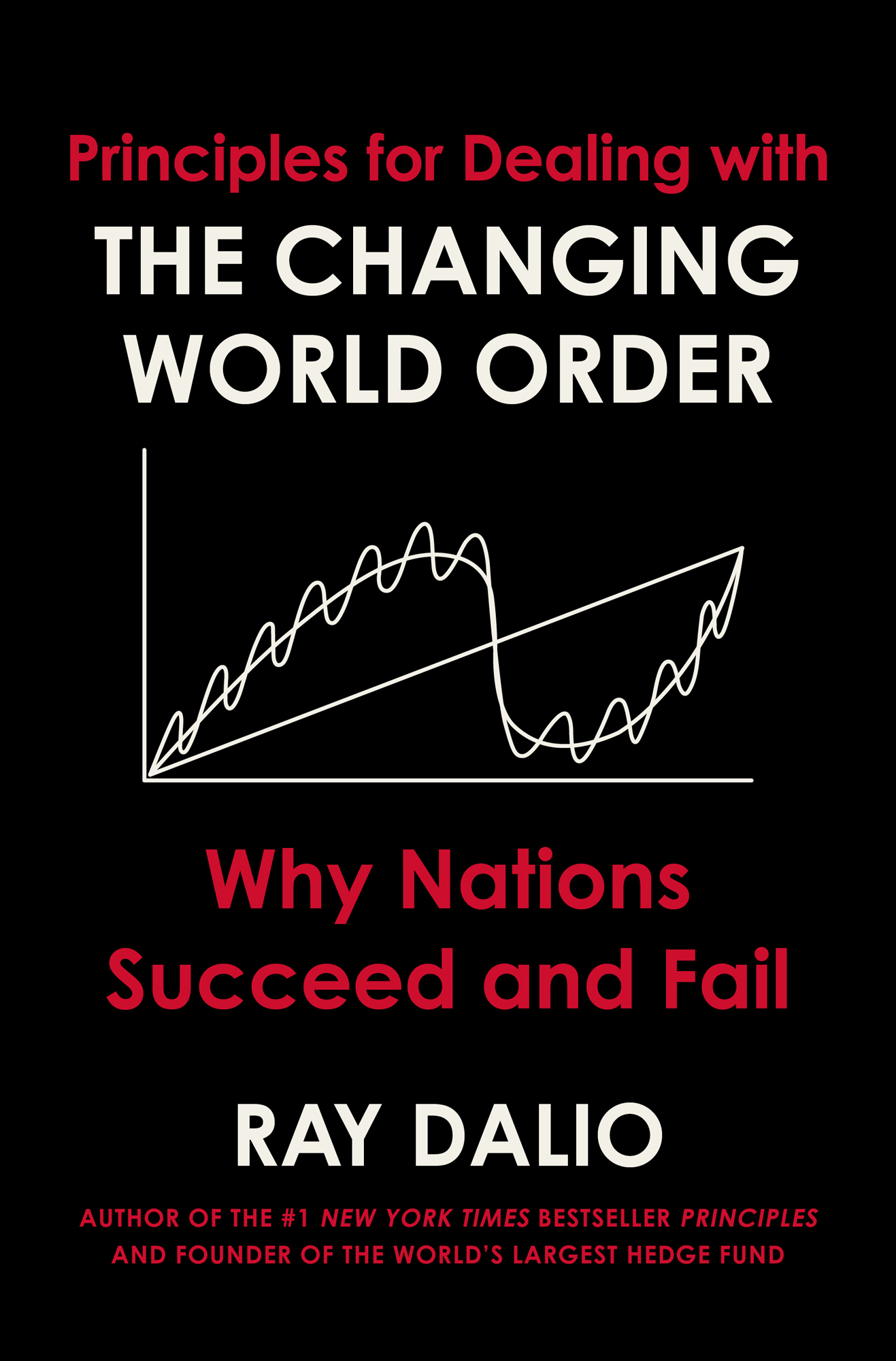

 putting a red dot in front of them and italicizing .
putting a red dot in front of them and italicizing .